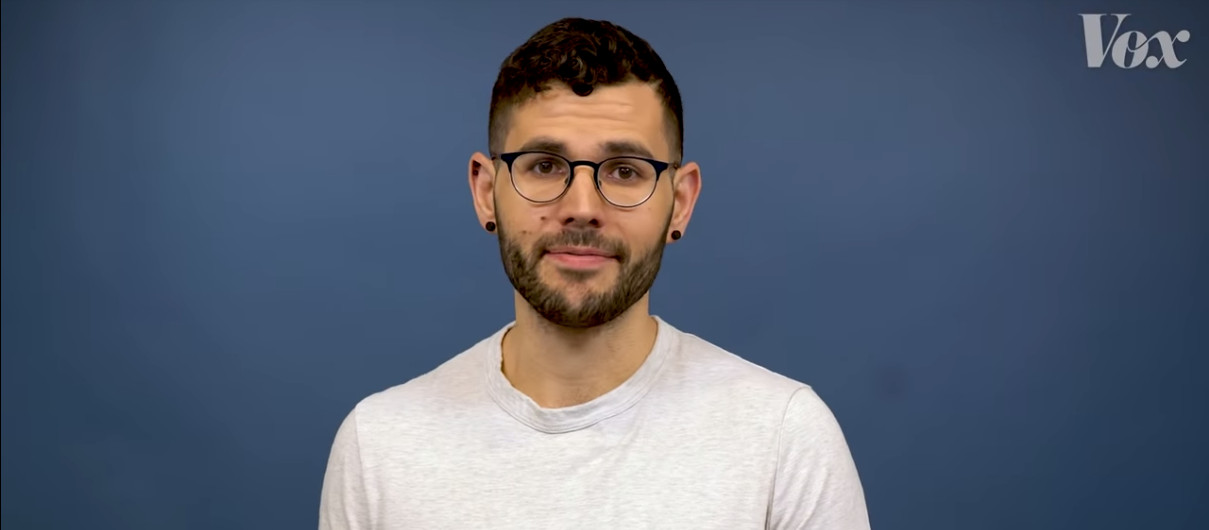Sign up for the daily CJR newsletter.
It happens every June. Corporations use Pride Month to speak to a community they otherwise ignore for the other 11. Here come the rainbow chips. Here come the rainbow burgers. Here come coupons for burritos that say “¿Homo estás?”
YouTube has also come under fire for cashing in on pride while failing to protect LGBTQ video creators such as Carlos Maza, host of the Vox series Strikethrough. Maza has been a target of attacks by Steven Crowder, a right-wing commentator with more than 3.8 million subscribers, for two years, receiving everything from homophobic insults to death threats from Crowder’s followers whenever a video is posted. Last Thursday, after previously getting nowhere by reporting Crowder to YouTube directly, Maza posted a video compilation of clips in which Crowder calls Maza a “lispy queer,” “gay Mexican,” and “gay V-neck,” among other things.
https://twitter.com/gaywonk/status/1134264395717103617
ICYMI: The Daily Beast under fire over story on ‘drunk Pelosi’ video
Crowder responded with a video titled, “Vox is Trying to Ban This Channel,” claiming that the fiasco was an example of a giant corporate entity trying to silence voices it doesn’t like. The video currently has nearly 1 million views, and Maza says he’s been “getting death threats like I’ve never gotten before, like specific death threats that mention family members.” He says his Facebook and Instagram accounts, as well as his work and personal emails, have been flooded with hate. “My family is freaked out that I’m going to get killed.”
Yesterday, YouTube said it would not take down videos harassing Maza. (Meanwhile, the platform announced today it will remove thousands of videos espousing extremist views.) Though its community guidelines say that videos “deliberately posted in order to humiliate someone, make hurtful and negative personal comments/videos about another person, or incite others to harass or threaten individuals on or off YouTube” are prohibited, the company said Crowder’s videos didn’t violate their terms:
(2/4) Our teams spent the last few days conducting an in-depth review of the videos flagged to us, and while we found language that was clearly hurtful, the videos as posted don’t violate our policies. We’ve included more info below to explain this decision:
— TeamYouTube (@TeamYouTube) June 4, 2019
https://twitter.com/TeamYouTube/status/1136055805545857024https://twitter.com/TeamYouTube/status/1136055959476817921
(4/4) Even if a video remains on our site, it doesn’t mean we endorse/support that viewpoint.
There are other aspects of the channel that we’re still evaluating– we’ll be in touch with any further updates.
— TeamYouTube (@TeamYouTube) June 4, 2019
The company elaborated on their response in an email to Gizmodo, saying that because Crowder’s videos primarily attack arguments in Maza’s videos, not Maza himself, they didn’t break their standards.
This stance, Maza says, prioritizes money-making over protecting LGBTQ creators. “YouTube requires victims of harassment to re-victimize themselves, put the humiliation on public display, and become targets for a whole network of hate and bigotry just to get their attention.”
ICYMI: NPR kills journalist’s piece over her accent
Although YouTube didn’t take action to stop Maza’s harassment, the company has taken action to promote pro-LGBTQ messages on social media. It has been promoting State Of Pride, one of three new documentaries being released this month in celebration of pride. It has highlighted a queer video creator and changed its avatar into a rainbow. Its Facebook and Twitter accounts even adorn a queer cartoon tapestry. The dichotomy between the company’s messaging and action has been noted on social media:
https://twitter.com/ParkerMolloy/status/1136089331943247873
I love that @YouTube, one of the biggest purveyors of right-wing hate on earth, has a rainbow avatar for Pride Month. They ignored serial and blatant homophobic harassment @gaywonk got from a guy with millions of subscribers, but look at the pretty colors. https://t.co/CTa75dA63w
— Jamil Smith جميل كريم (@JamilSmith) June 5, 2019
Hey @TeamYouTube @YouTube @YTCreators @YTAdvertisers pic.twitter.com/PwtMohbuwz
— J.O.E.K.I over 9000 肉💚 (@Esco_kiddo) June 5, 2019
“There’s something deeply despicable to me about a company that claims those kind of values and doesn’t protect its queer creators,” Maza says. “I would almost feel more comfortable if YouTube said, ‘We don’t care about queer people, that’s not part of our brand.’ But YouTube is making money off of pretending to give a shit about this, because they don’t. They care about looking like they give a shit so corporate brands don’t realize what a dumpster fire YouTube really is.”
Last year, at the end of Pride Month, YouTube publicly apologized to the community after complaints that the platform restricted LGBTQ videos and in some cases even served anti-LGBTQ ads. Apart from his harassment, Maza says, YouTube still needs to resolve the bigger issues of incentivizing the creation of radical content and failing to protect marginalized communities.
“Until YouTube has a reckoning about their responsibility as a platform, that they have more responsibilities than engagement, nothing is going to change because this stuff is not a mistake—it’s by design,” Maza says. “YouTube gave them this massive weapon that’s so powerful that even saying ‘Hey, I think this violates YouTube’s policy’ makes you have to worry about your life.”
ICYMI: Do you enjoy stories about people in Florida? There’s something you should know.
Has America ever needed a media defender more than now? Help us by joining CJR today.







